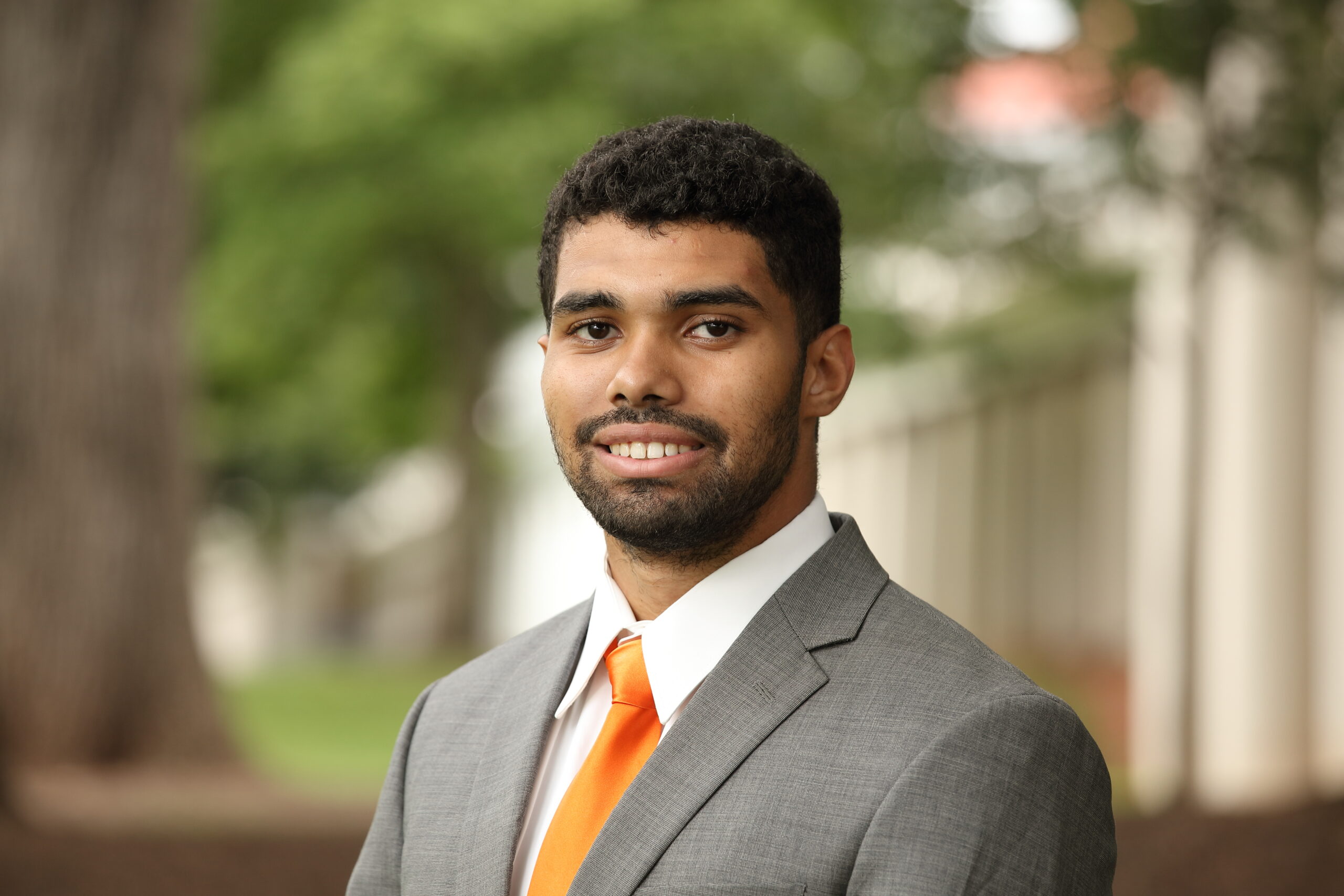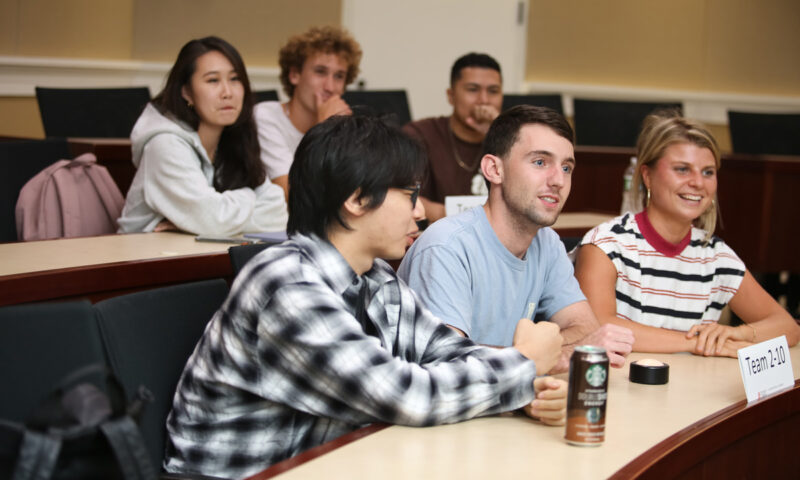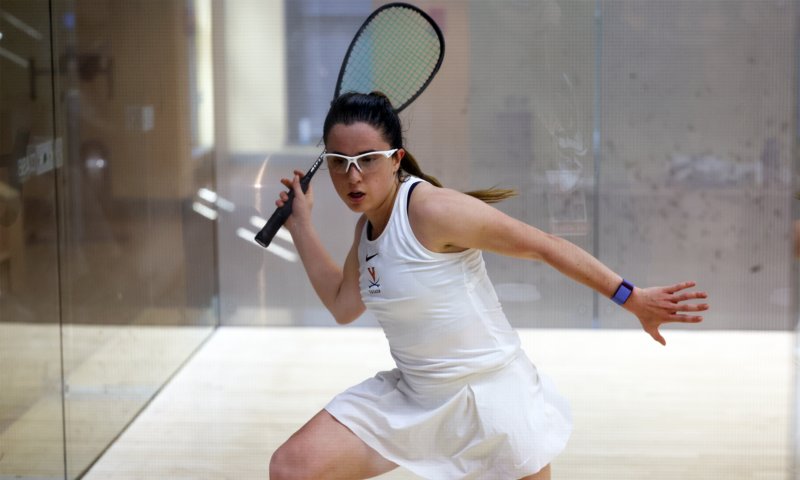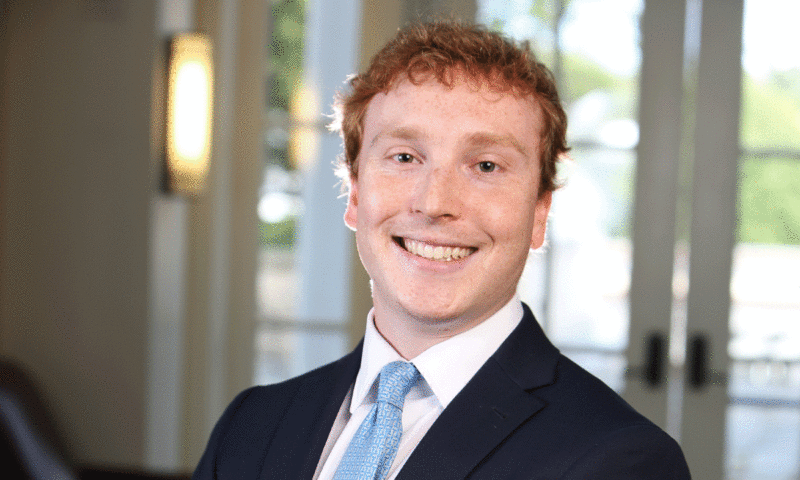As I was wrapping up my senior year of undergraduate studies last spring, the pandemic added many unprecedented and challenging factors to my graduate school decision-making process. While gaining a business education was certainly my main objective, I recognized that one of the most significant aspects of this education comes from the interpersonal experience students have with classmates, professors, and other community members. This realization ended up playing a major role in my decision to attend McIntire, as I was told time and time again during the recruiting process of the value that McIntire places on in-person learning.
Thankfully, the M.S. in Commerce Program was able to operate the semester in a hybrid format, preserving parts of the interpersonal master’s experience that many other schools were unable to. I was curious to find out what led to McIntire’s decision to utilize the hybrid format and how the administration retrospectively felt about it. Check out my conversation with Professor Ira Harris, Director of the M.S. in Commerce Program.
What led to the decision to conduct McIntire’s graduate programs in a hybrid format?
One of the biggest motivating factors for having in-person learning was actually student feedback, Harris said.
“Throughout the summer, talking to students, it was clear that there was a strong appetite for students being in Charlottesville and in the building,” Harris said.
Both McIntire administrators and students agreed upon the value that in-person classes provide. Personally, one of the main reasons I chose McIntire over other schools was a result of hearing about their commitment to making a hybrid fall a reality.
But as much as students and faculty may desire a hybrid format, this desire was not what sealed the decision. Instead, what made the hybrid system possible was the preparation and capabilities of McIntire and UVA as a whole.
“One of the questions was ‘Can we do it in a way that’s safe for everyone?’ There are some schools with facilities that don’t allow it in the same way, but with our building being very modern and having a modern ventilation system, we felt very confident and excited to have students in the building,” Harris said.

Professor Ira Harris and Justice Dixon
Harris admitted that if the University did not feel that in-person classes could be done in ways that mitigate the risk of spreading COVID-19, classes would have remained virtual. He credits the extensive time and effort of the University staff in creating a safe environment for students to learn.
“The administrators and facilities folks spent a lot of time over the summer creating as safe of an environment as possible. And this reassured and reinforced the decision to provide the hybrid model.”
We are now halfway through the program. How do you feel the hybrid learning system has gone thus far?
So far, Harris has been pleased with the system. Much of the strategic planning for the program in the summer focused on preventing an “undue burden” being placed on students because of the unique system, he said. One key decision involved placing all in-person class days on Monday and Wednesday, while keeping the remaining class days virtual.
“This prevents hybrid students from having to run back and forth between the McIntire facility and their homes [on class days],” Harris said, noting that this decision also ensured that students would have little issue joining classes on time.
The faculty and staff also had to address the unique needs of students choosing to attend McIntire virtually. They created options ranging from recording lectures, to giving project groups more flexibility for meeting times.
Have you gotten any feedback from students on the system?
Student feedback on the hybrid system has been mostly positive.
“There have been many students who have come to me and said, ‘I’ve had a lot of concerns about what this system was going to be, but it has consistently exceeded my expectations.’”
He also noted that students who chose to attend McIntire entirely online have felt well-engaged in the lectures and activities. Harris credits this engagement to the inherent structure of the courses.
“The program’s learning objectives are really not dependent on everyone being in the room together,” Harris said, as the bulk of student assignments consist of small group projects and case studies.
Although feedback has been positive, there have been some hurdles along the way that faculty and staff are looking to improve upon. For example, the addition of several in-person Friday lectures “was a direct response to students reaching out and wanting to be in the building.”
Other suggestions, such as amplifying the microphones situated around McIntire classrooms, have also led to the School enhancing the audio capabilities of the classrooms.
Just as the professional world has changed because of the pandemic, the M.S. in Commerce Program has also changed. What are some of these changes and are there any core elements of the program that you see staying constant pre- and post-pandemic?
“It is prompting us to think differently about in-person instruction,” Harris said.
While few changes have been made to the actual content of the courses, the graduate programs have adapted in other ways.
“We wanted to think of ways to facilitate more means of communications between students, faculty, and staff for both general discussions and exchanging documents.”
To make these changes, Harris and other McIntire administrators turned to the professional world for ideas. “Increasingly, companies are using Microsoft Teams or something similar, so it makes sense for our students to get familiar with these platforms.”
These systems have been pretty seamlessly implemented into many courses and Harris envisions that their use will continue beyond the pandemic.
Many Zoom features have also made the virtual experience easier. For example, the ability to share screens on the platform has allowed professors, specifically those teaching more technical courses, to see student work and help troubleshoot issues in real time. Rather than having to be in the same room, professors are able to immediately see what students see.
“We will continue to keep an eye on what’s happening in organizations, and how organizations behave,” Harris said. “We use that information to inform overall program design, curriculum, and some of the activities that we would engage in within courses, so that’s something that we take very seriously.”
Lastly, you emphasized the importance of grounding the program in the professional world. Are there any key takeaways that give M.S. in Commerce alumni an edge as they begin to navigate their careers?
“The program prepares graduates to be market-ready, to be well-trained, and to immediately add value to whatever industry and organization they are going to,” Harris said. “It teaches students to embrace more of a general managerial perspective,” regardless of their concentration.
According to Harris, this perspective includes helping students gain both hard, analytical skills and soft, compositional skills.
“There’s a very strong focus on analytical tools and the effect of those on our students’ thinking [in the program],” Harris said. “But we also hear professionals explain that they underappreciated the soft side of the business skills.”
For Harris, in order to put program graduates in the best position to provide value to their employers, the M.S. in Commerce curriculum places a strong emphasis on verbal, written, and other presentational skills.
“Students need to be able to craft, package, and present ideas,” Harris said. This combination of hard and soft skills formulates the “holistic way that our graduates enter the market.”



